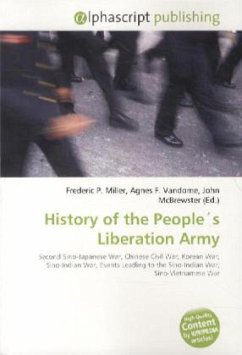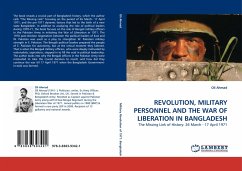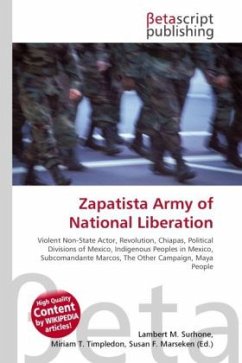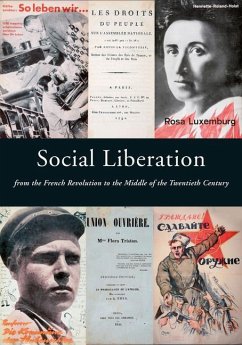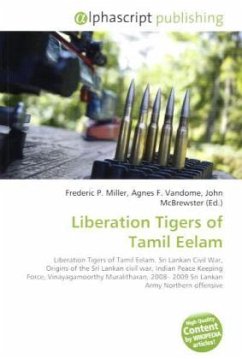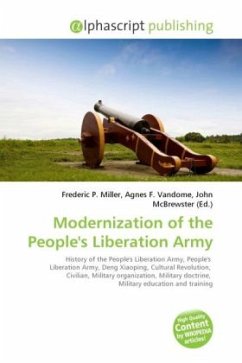
Modernization of the People's Liberation Army
Versandkostenfrei!
Versandfertig in 6-10 Tagen
39,99 €
inkl. MwSt.

PAYBACK Punkte
20 °P sammeln!
The military modernization program of the People's Liberation Army which began in the late 1970s had three major focuses. First, under the political leadership of Deng Xiaoping, the military became disengaged from civilian politics and, for the most part, resumed the political quiescence that characterized its pre-Cultural Revolution role. Deng reestablished civilian control over the military by appointing his supporters to key military leadership positions, by reducing the scope of the PLA's domestic non- military role, and by revitalizing the party political structure and ideological control...
The military modernization program of the People's Liberation Army which began in the late 1970s had three major focuses. First, under the political leadership of Deng Xiaoping, the military became disengaged from civilian politics and, for the most part, resumed the political quiescence that characterized its pre-Cultural Revolution role. Deng reestablished civilian control over the military by appointing his supporters to key military leadership positions, by reducing the scope of the PLA's domestic non- military role, and by revitalizing the party political structure and ideological control system within the PLA. Second, modernization required the reform of military organization, doctrine, education and training, and personnel policies to improve combat effectiveness in combined-arms warfare. Among the organizational reforms that were undertaken were the creation of the state Central Military Commission, the streamlining and reduction of superfluous PLA forces, civilianizationof many PLA units, reorganization of military regions, formation of group armies, and enactment of the new Military Service Law in 1984.



